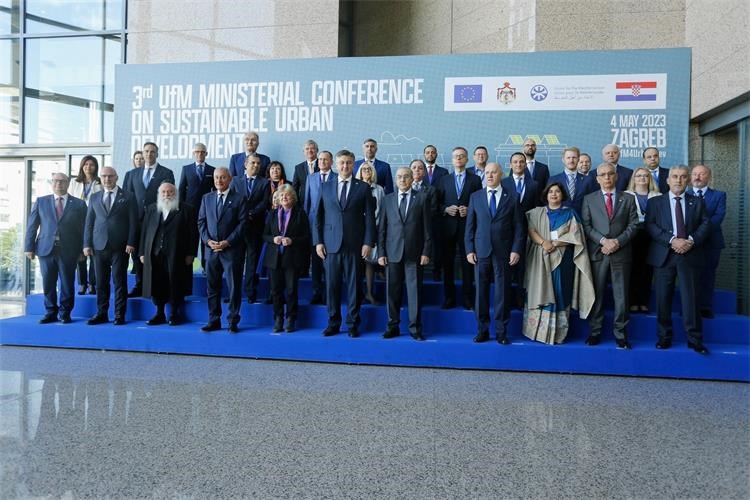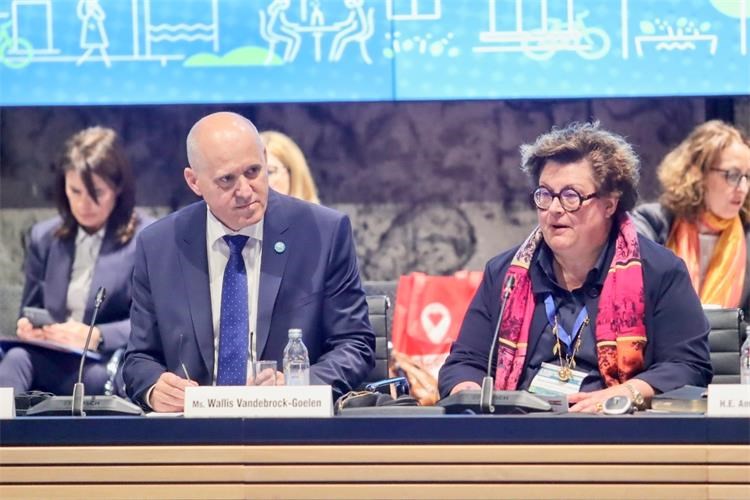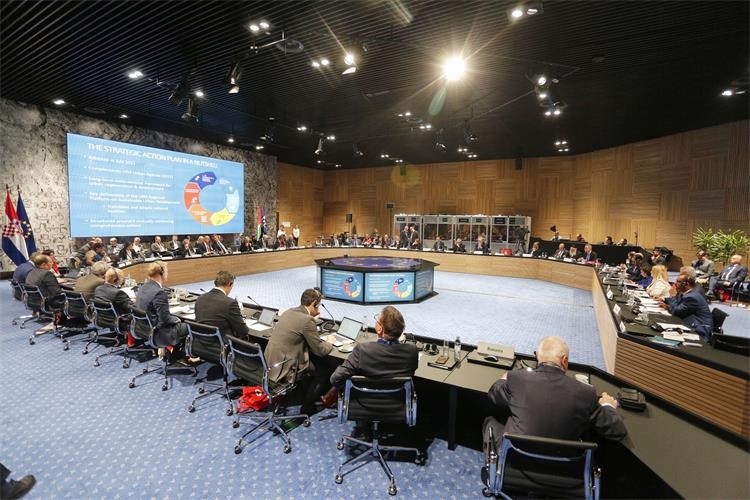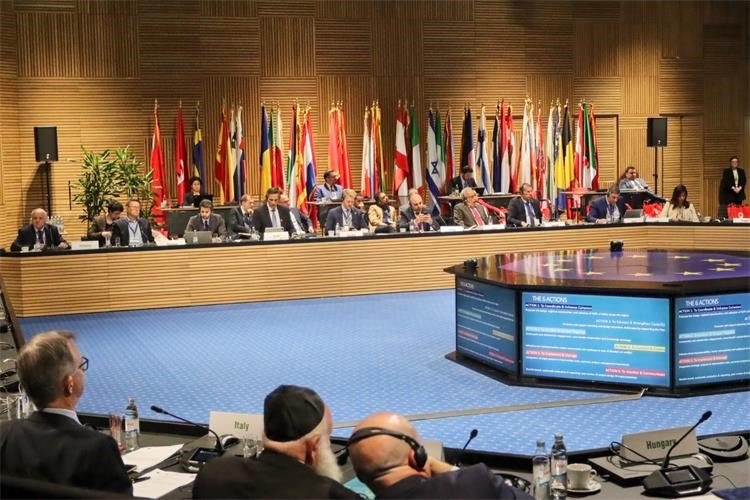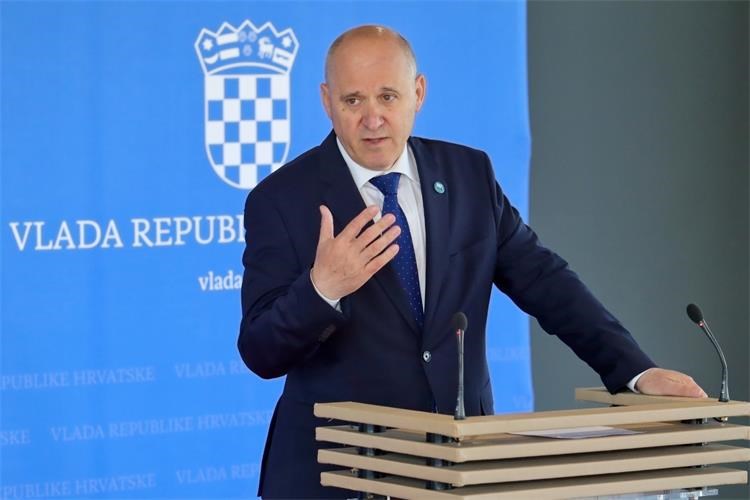- Published: 04.05.2023.
Sustainable urbanism imperative, hears UfM conference on urban development
(Hina) - An estimated two thirds of the global population will likely live in cities by 2050, and the development of the sustainable urbanism is an imperative, Prime Minister Andrej Plenković said at a conference on sustainable urban development of the Union for the Mediterranean in Zagreb on Thursday.
The Croatian capital city hosted the third Ministerial Conference on Sustainable Urban Development of the Union for the Mediterranean (UfM).This framework of political cooperation is very significant for peace, stability, economic, cultural and transport cooperation and is also an occasion for trying together to find solutions to the issues of urban development, Plenković said in his keynote speech at the start of the event.
The third conference took place in Zagreb, after the first and second one were held in Strasbourg in 2011 and in Cairo in 2017.
"The Mediterranean is the cradle of many civilisations, a unique space for exchange and cooperation between Europe, Asia and Africa. What we now have in common is exposure to climate change, high concentration of populations in the coastal ares, openness to tourism, exposure to the sea pollution and the unsustainable use of natural resources, said Plenković.
The UfM is an intergovernmental association consisting of 27 members of the European Union and 15 North African and Middle East countries, 42 in total.
In his speech Plenković underscored that sustainable urbanism is also an imperative and not only a political goal of the Union for the Mediterranean.
The host of the conference, Croatian Minister of Physical Planning and Construction, Branko Bačić, said that the alliances such as the Union for the Mediterranean were necessary to address the contemporary challenges which require rapid response and the responsibility towards the space.
The third ministerial conference also dealt with housing matters.
Rising prices in the construction industry especially price hikes in the housing construction industry in Croatia also ask for additional efforts of public authorities to seek more ways for providing accessible and affordable housing, said Minister Bačić.
Croatia is implementing the state-subsidised housing scheme under which about 8,800 flats have been built and the scheme for the state-subsidised housing loans for young people, he added.
The Union for the Mediterranean is currently being chaired by Jordan and the European Commission.
Addressing the event, the European Commissioner for Cohesion and Reforms, Elisa Ferreira, called th UfM "a unique platform for dialogue".
She is also confident that the ministerial conference will make a contribution to the implementation of the 2030 Agenda concerning the UN Sustainable Programme goals.
Cities centres of innovation, inspiration and action
Cities are centres of innovation, inspiration and action, said the Ferreira who added that cities would play a crucial role in the fight against climate change.
The participants in the Zagreb conference are expected to take stock of to the implementation of the UfM Urban Agenda since the Cairo conference.
Minister Bačić says Adriatic cities in focus of Croatian sustainable development
Croatian Minister of Physical Planning and Construction Branko Bačić, who on Thursday hosted a ministerial conference of the Union for the Mediterranean (UfM) on sustainable urban development, said more attention would be paid to the urban sustainability of cities along the Adriatic coast.
Bačić told the press after the first part of the conference that the Zagreb ministerial meeting would adopt a declaration on action plans for sustainable urban development and affordable housing.
Those action plans will provide UfM member-states with guidelines for addressing climate change and for making cities more energy efficient, said the minister.
The Mediterranean and its coasts are warming up 20% faster than the global average.
Coastal cities are most exposed to climate change and special attention is being paid to the protection of the cities added to the UNESCO list, such as Dubrovnik, Split and Trogir, according to Bačić.
Our responsibility is even greater as those cities make up Croatia's identity and are part of our tourism industry, he said.
Cities cover a mere 2% of the land worldwide, however, 70% of global greenhouse gasses come from urban centres and cities consume 78% of global energy.
Improving energy efficiency of buildings helps us to reach the targets of the reduction of greenhouse gas emissions, the minister told the press at the National and University Library (NSK), where the UfM conference was taking place.
Bačić announced that Croatia would adopt a National Housing Policy Plan by 2030.
Hina/MPGI
